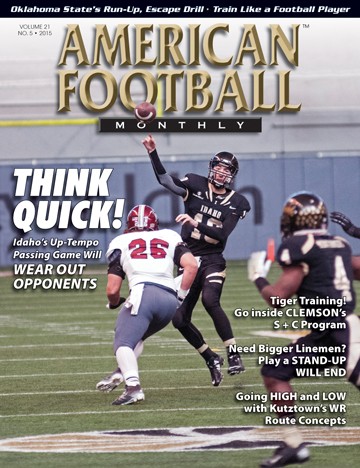Article CategoriesAFM Magazine
|
Interview with Dr. Jared Wood and Jeff Heath, Dallas Cowboys Safety and Special Teams Starterby: Jared WoodSport Psychology Consultant © More from this issue This past off-season I had the opportunity to interview Jeff Heath, a safety and special teams starter for the Dallas Cowboys. I love getting to interview guys like Jeff because they weren't superstars coming out of high school or college, and yet they are able to make it in the NFL. To me, guys like Jeff are a great study in how to do things right mentally and how to make a big transformation - from a barely recruited player at the D-II level - to an NFL caliber player in just four years. Below I've transcribed my interview with Jeff, and I added some comments about how his answers illustrate ....The full article can only be seen by subscribers. |
|
|||||||
| HOME |
MAGAZINE |
SUBSCRIBE | ONLINE COLUMNISTS | COACHING VIDEOS |
Copyright 2025, AmericanFootballMonthly.com
All Rights Reserved





